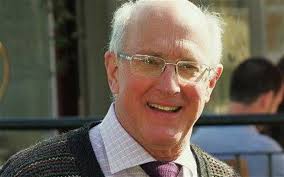记忆方法
将“grandfather”分解为“grand”和“father”。记忆方法可以是:想象一个“grand”大的“father”父亲,这个“father”是家族中辈分很高、经验丰富的人。通过这种形象化的联想,可以更容易地记住这个单词及其含义。
以上内容由AI生成, 仅供参考和借鉴
英语词源
- grandfather (n.)
- early 15c., from grand- + father (n.), probably on analogy of French grand-père. Replaced grandsire and Old English ealdefæder. Grandfather clause originally (1899) referred to exemptions from post-Reconstruction voting restrictions (literacy, property tax) in the U.S. South for men whose forebears had had the right to vote before 1867 (thus allowing poor and illiterate whites to continue to vote). Grandfather clock is from 1894, originally grandfather's clock (1876), "a furniture dealer's name" [OED] from "My Grandfather's Clock," the 1876 song by Henry Clay Work that was enormously popular (and loathed) in late 1870s. It indicates that they were beginning to seem old-fashioned; they were previously known as tall case clocks or eight-day clocks.
权威例句
- 1. He sat listening to the tick of the grandfather clock.
- 他坐在那儿,听着落地式大摆钟嘀嗒作响。
- 2. My great-grandfather was a person of some importance here.
- 我曾祖父曾是这儿的头面人物。
- 3. My great-grandfather made horseshoes and nails and what have you.
- 我曾祖父打制马掌、铁钉等诸如此类的东西。
- 4. Her great-grandfather had clearly been a dedicated and stoical traveller.
- 她的曾祖父显然是一位非常投入而且坚忍不拔的旅行爱好者。
- 5. Adam spent a lot of time in his grandfather's office.
- 亚当经常呆在他祖父的办公室里。
